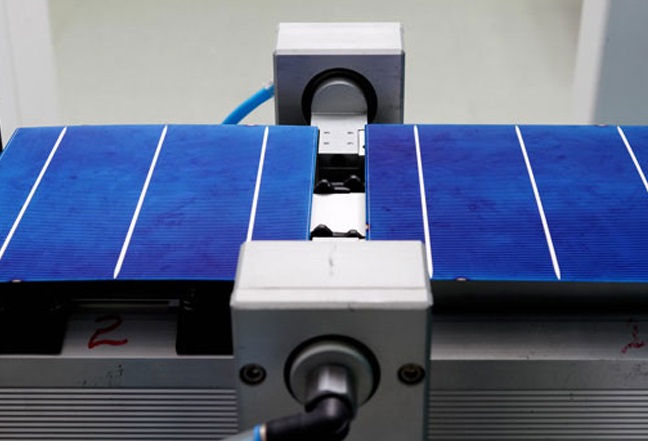
Indian utility Tata Power will aim to take advantage of policy support from India’s government as it sets up new cell and module manufacturing capacity in the country.
Publishing its Q3 results yesterday, the company said it plans to leverage both India’s production-linked incentive (PLI) programme and the upcoming introduction of import duties on solar equipment as it progresses with setting up 4GW of cell and module capacity with an investment of INR34 billion (US$453 million).
Try Premium for just $1
- Full premium access for the first month at only $1
- Converts to an annual rate after 30 days unless cancelled
- Cancel anytime during the trial period
Premium Benefits
- Expert industry analysis and interviews
- Digital access to PV Tech Power journal
- Exclusive event discounts
Or get the full Premium subscription right away
Or continue reading this article for free
A government initiative aimed at backing the domestic development of high-efficiency PV modules, the PLI scheme initially saw 18 bidders submit 54.8GW of applications. India’s finance minister has since announced that funding for the programme will be increased more than four-fold as the country looks to reach 280GW of installed solar capacity by 2030.
Ashish Khanna, president at Tata Power Renewables, told PV Tech Premium recently that he sees a “bright future” for solar manufacturing in India, with the company exploring various sites and states for its new production plant.
The ramp-up follows Tata Power Solar last year raising Mono Passivated Emitter Rear Cell (PERC) capacity at its Bengaluru plant from 300MW to 530MW, while module assembly capacity at the site increased from 400MW to 580MW.
As of 1 April, Indian solar manufacturers will benefit from a basic customs duty of 40% on modules and 25% on cells – a policy that research and consultancy firm Bridge to India forecasts will be a “game changer” for domestic manufacturers.
During Q3, Tata Power added 289MW of renewables capacity, while its Tata Power Solar subsidiary secured a total of 320MW of utility-scale engineering, procurement and construction (EPC) orders, including India’s largest solar-plus-storage project to date.
Thanks in part to solar project execution, Tata Power saw its Q3 revenue jump 42% year-on-year to INR110.2 billion (US$1.46 billion).






